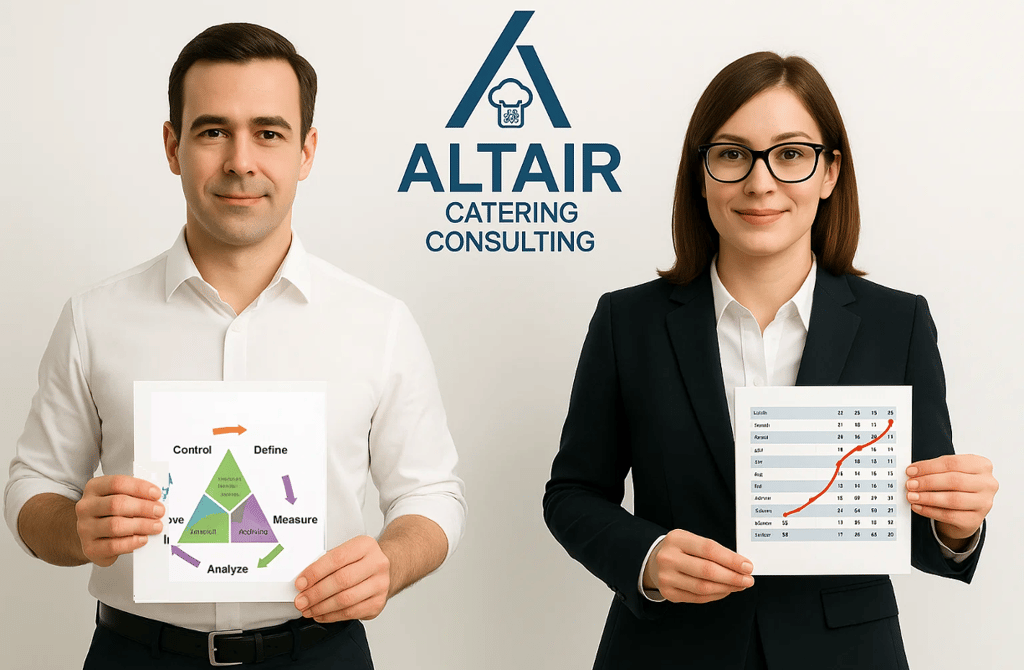Change management and Consultancy in Airline Catering
The nuances of two approaches
Andrew Caines and Marc Bonet
5/19/20252 min read


In-flight catering operations, like many areas in the airline industry, can benefit greatly from consultancy and change management. Here's a breakdown of how each can be applied, with a particular focus on their nuances:
1. Consultancy in In-Flight Catering Operations
Consultants can bring fresh perspectives, specialised knowledge, and industry best practices to in-flight catering operations. Here's how consultancy adds value:
Operational Efficiency: Consultants can assess current operations, identify inefficiencies, and design improvements. For instance, they can streamline workflows, enhance kitchen operations, reduce food waste, and optimise supply chain management, all of which improve profitability and customer satisfaction.
Cost Reduction: In-flight catering often operates with thin margins. A consultant can help with cost-cutting strategies, such as optimising ingredient sourcing, managing inventory more efficiently, and reducing labour costs without compromising quality. This might involve renegotiating supplier contracts or identifying wasteful practices.
Regulatory Compliance: With frequent changes in health and safety regulations, consultants can ensure that in-flight catering companies stay compliant with food safety standards (e.g., HACCP, ISO 22000) across various jurisdictions.
Technology Integration: As more airlines adopt AI and automation in their catering operations, consultants can guide the implementation of new technologies, such as data analytics for demand forecasting or robotics for meal preparation.
2. Change Management in In-Flight Catering Operations
Change management is the process of guiding an organization through change, our program COPEX ensures that new systems or practices are adopted smoothly and effectively. In in-flight catering, this is especially crucial due to the highly operational nature of the business. Here's how change management works:
Cultural Shifts: Change management in in-flight catering often involves shifting the culture around food safety, customer experience, or operational efficiency. This requires careful communication, leadership involvement, and targeted training programs that align with the new ways of working.
Employee Engagement: In-flight catering operations are highly dependent on the workforce's ability to adapt to changes. Change management helps foster buy-in from employees by explaining the reasons behind the changes, involving them in decision-making, and offering support during transitions.
Adapting to New Technologies: Implementing technology like AI for predictive demand or adopting digital ordering systems requires strong change management. Catering teams need to understand and embrace these tools to maximize their effectiveness. A structured change management plan can ensure a smooth transition, addressing potential resistance and training staff appropriately.
Process Re-engineering: Whether it’s moving to just-in-time production, reducing food waste, or improving communication between flight and catering teams, change management is critical. It helps address how employees at all levels will adapt to new workflows, new equipment, and new performance metrics.
Combining Both: How They Work Together
In-flight catering can benefit from both consultancy and change management in a complementary manner:
Our Consultants will identify areas for improvement through analysis and offering recommendations based on industry benchmarks. Assessing the inefficiencies in meal preparation or inventory management and recommend a change.
Then the Change management comes into play when it's time to implement the change. Altair will ensure employees understand the benefits of the change, receive the necessary training, and gradually adopt the new way of working.
Altair’s COPEX aligns consultancy with strong change management practices, in-flight catering operations can not only improve performance but also ensure that the changes are sustainable and create a lasting impact on both operational efficiency and employee satisfaction.
